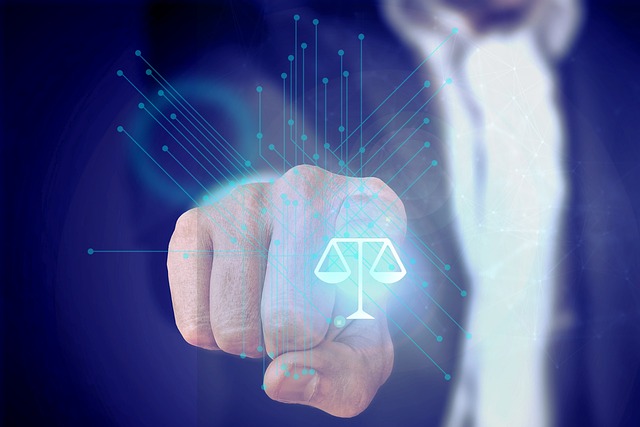Building a Defense Against False Accusations involves strategic measures like meticulous record-keeping, transparent communication, and internal controls to promote ethical conduct in organizations. By prioritizing integrity, proactive protocol implementation, clear channels, training, and fear-free reporting, businesses can prevent unfounded allegations, conduct unbiased investigations, and protect their reputation, ensuring operational continuity and avoiding legal battles. Post-investigation, rebuilding trust through transparency, robust internal controls, and enhanced corporate governance solidifies commitment to ethical practices.
In today’s complex business environment, C-level executives face heightened scrutiny. Protecting against false accusations is paramount for maintaining organizational integrity and individual reputations. This comprehensive guide explores strategic approaches for building a robust defense against such allegations. We delve into understanding the profound impact of false accusations, implementing proactive measures for executive protection, establishing efficient internal investigation processes, utilizing legal strategies to mitigate risks, and restoring reputation post-investigation.
- Understanding the Impact of False Accusations
- Proactive Measures for C-Level Protection
- Building a Robust Internal Investigation Process
- Legal Strategies to Defend Against Allegations
- Restoring Reputation: Post-Investigation Steps
Understanding the Impact of False Accusations

False accusations can have a profound impact on individuals, organizations, and their reputations. In today’s digital age, where information spreads rapidly, allegations, especially those made in good faith but later proven false, can be devastating. They can lead to public disgrace, damaged relationships, and significant financial losses. For C-level executives and businesses facing such accusations, understanding the potential consequences is crucial for building a robust defense against false claims.
A strong white-collar defense strategy involves proactive measures to avoid indictment and navigate challenging legal scenarios. This includes meticulous record-keeping, transparent communication, and implementing internal controls that promote ethical conduct. By fostering a culture of integrity within the organization, companies can minimize the risk of false allegations and protect their interests in the event of an investigation. Ultimately, a well-prepared defense strategy enables organizations to not only win challenging defense verdicts but also maintain their reputation and operational continuity.
Proactive Measures for C-Level Protection

In today’s complex business landscape, safeguarding C-level executives from potential false accusations is a proactive measure that organizations must take seriously. Building a robust defense system involves a multi-faceted approach to mitigate risks and ensure the integrity of leadership. By implementing stringent protocols and policies, companies can create a culture of transparency and accountability, thereby reducing the likelihood of unfounded allegations.
A key strategy in this regard is establishing clear communication channels and training executives on ethical conduct. Regular workshops and sensitivity training sessions can educate top-level management about potential pitfalls and encourage open dialogue. Moreover, organizations should foster an environment where employees feel comfortable reporting concerns without fear of retaliation, ensuring that any issues are addressed promptly. This unprecedented track record of effective internal investigations can significantly contribute to avoiding indictment and upholding the reputation of C-level executives across the country.
Building a Robust Internal Investigation Process

In today’s complex business landscape, where ethical standards are under constant scrutiny, building a robust internal investigation process is paramount to protecting organizations from false accusations and potential reputational damage. This proactive approach serves as a powerful defense mechanism against allegations, especially in the realm of white-collar crime. By establishing clear protocols and procedures, companies can ensure that investigations are thorough, unbiased, and compliant with legal standards.
A well-structured internal investigation process involves several key components. For his clients, this includes identifying potential red flags, conducting discreet and impartial interviews, gathering relevant evidence, and documenting findings methodically. The goal is to uncover the truth while maintaining fairness, ultimately shielding organizations from unnecessary jury trials and ensuring their integrity remains intact.
Legal Strategies to Defend Against Allegations

When facing white collar and economic crimes allegations, a robust legal strategy is paramount to building a strong defense. The first step involves meticulously gathering and examining evidence to identify any discrepancies or lack of substantiation in the accusations. Skilled attorneys can challenge the validity of evidence, especially when dealing with complex financial matters, ensuring that their clients’ rights are protected.
By employing strategic tactics, legal teams can aim to achieve extraordinary results for their respective business clients. This includes careful fact-finding, expert witness testimony, and navigating the intricate legal landscape to counter false accusations effectively. A well-prepared defense can significantly reduce potential penalties and maintain the integrity of the accused organization.
Restoring Reputation: Post-Investigation Steps

After a C-Level investigation, restoring reputation is paramount to rebuilding trust within the respective business, as well as in the philanthropic and political communities. The initial steps involve a transparent assessment of the findings and taking immediate action to address any issues uncovered. This includes implementing robust internal controls and procedures to avoid indictment in future incidents.
A comprehensive communication strategy should be developed to engage stakeholders, employees, and the public. Honesty and accountability are key; acknowledging mistakes openly demonstrates a commitment to change. Leveraging this opportunity to enhance corporate governance practices can further solidify the company’s dedication to ethical conduct. By taking these proactive measures, businesses can not only mitigate reputational damage but also demonstrate their responsibility and integrity to all stakeholders involved.
In conclusion, navigating the complex landscape of C-level investigations requires a multifaceted approach. By understanding the devastating impact of false accusations and proactively implementing protective measures, organizations can fortify themselves against potential crises. A robust internal investigation process, coupled with strategic legal defenses, is essential for mitigating damage and restoring reputations. Remember that building a defense against false accusations is not just about survival; it’s about ensuring the longevity and integrity of your organization in today’s scrutinized business environment.






